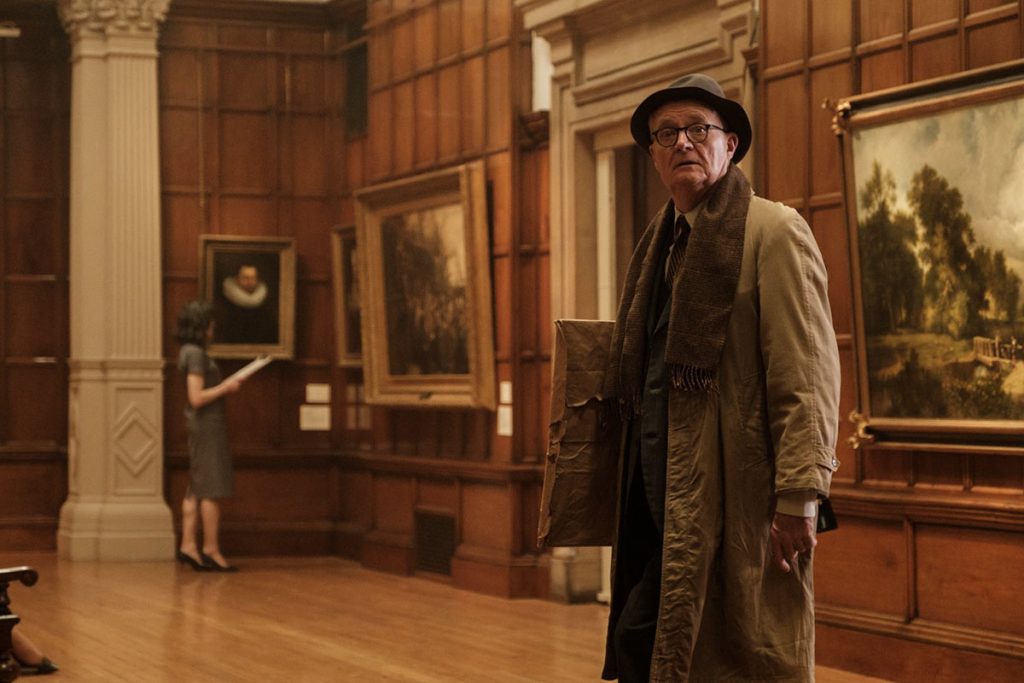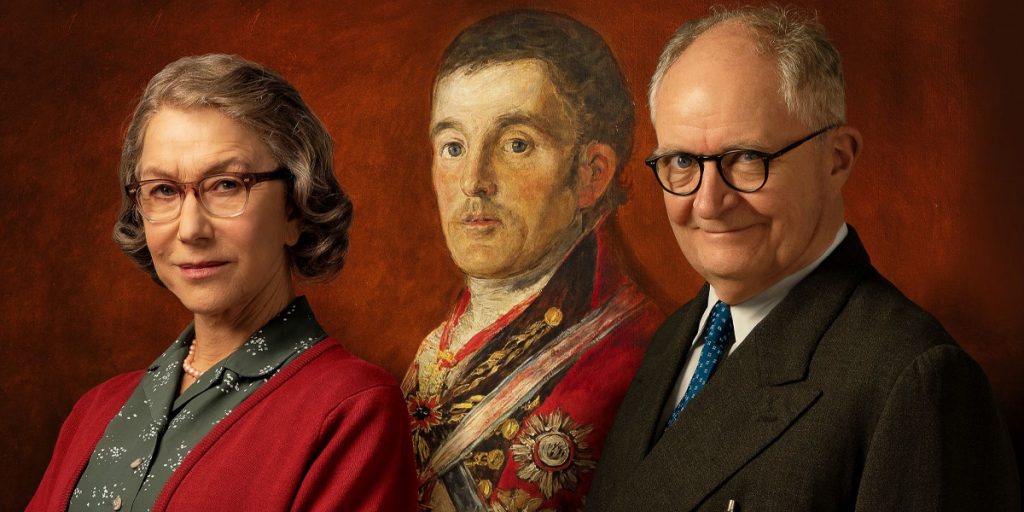The Duke is a hilariously nostalgic film about one bighearted working class man and his fight against the obnoxious BBC TV License.
There are few things in life less risky and irritating than trying to watch your favourite show in the UK – unless you are the proud and responsible owner of the infamous BBC TV Licence. To be able to legally receive and watch shows on the BBC channels, UK residents must be able to show that they have bought the TV Licence for the year; failure to do so can result in a hefty fine, and, as Roger Mitchell’s (Notting Hill, Venus) newest feature film The Duke shows, even a short prison sentence. It is understandably a cause of frustration for many Brits, but how far is one brave individual willing to go to fight the system?
Kempton Bunton (Jim Broadbent, Moulin Rouge!, The Iron Lady) is a man of the people, a man of the working class, born, raised, and self-educated in the industrial town of Newcastle, Yorkshire. The year is 1961, and the National Gallery has just spent no less than £140,000 on Francisco Goya’s renown painting ‘The Duke of Wellington’, which Bunton cleverly describes as not even being remotely pretty. He also notices that, for that amount of public funds, you could have bought 3500 TV licenses, which could have saved an awful lot of veterans and elderly people from loneliness. For Bunton, the choice should have been simple – a society cannot bloom and support itself if it does not support all its members.
Rooping his son Jackie (Fionn Whitehead, Dunkirk, Bandersnatch) into his impromptu street petitions and leaving his wife Dorothy (Helen Mirren, The Queen, Hitchcock) to clean up his messes (besides the others she cleans up for the local counselor’s family), Bunton is on a mission to right the wrongs in his very local world, even if it is to his own detriment. While in London to petition for free TV Licenses for the elderly, he stumbles upon Goya’s ‘The Duke of Wellington’ and decides to loan the painting to further his cause. What ensues is highly comedic cinematography combined with a healthy dose of Northern English banter.

In fact, in various scenes, the nuances of a myriad of local English language is used to demonstrate the conditions in which the Bunton family live and are raised. Pammy’s (Charlotte Spencer, Glue, The Living and the Dead), the girlfriend of Bunton’s other son Kenny (Jack Bandeira, Gunpowder Milkshake, Sex Education), whole character seems to exist solely to illustrate the prejudice against the working class in highlighting their differences in language. Even when the formidable Sian Clifford (Fleabag, Vanity Fair) is called in as script expert Dr. Unsworth, Bunton, who sent anonymous notes stating his demands through a true working man paper, the Daily Mirror, is put down as a simple and uneducated man. The detectives seem all too eager to find Italian gangs to blame, which is another reference to the prejudistic and simply racist views in British society at the time.
Besides depicting a true story, The Duke draws its power not from the factual occurrences of the event, but from playing with the feelings, emotions and motivations behind the true story. In Roger Mithcell’s retelling of Kempton Bunton’s story, we meet the man and his reasons behind the extraordinary tale of the stealing of Goya’s famous painting. In a last-minute saving-the-day apparition of Matthew Goode (Brideshead Revisited, Stoker) as Bunton’s lawyer Jeremy Hutchinson, the absurdity and down-to-earthness of the situation turns from the comedic into a heartfelt portrayal of humanity and human kindness. The Duke is a heartfelt and hilarious take on the fight of the working class against the establishment. Free TV licenses for all!
The Duke is now available to watch on digital and on demand. Watch The Duke!

